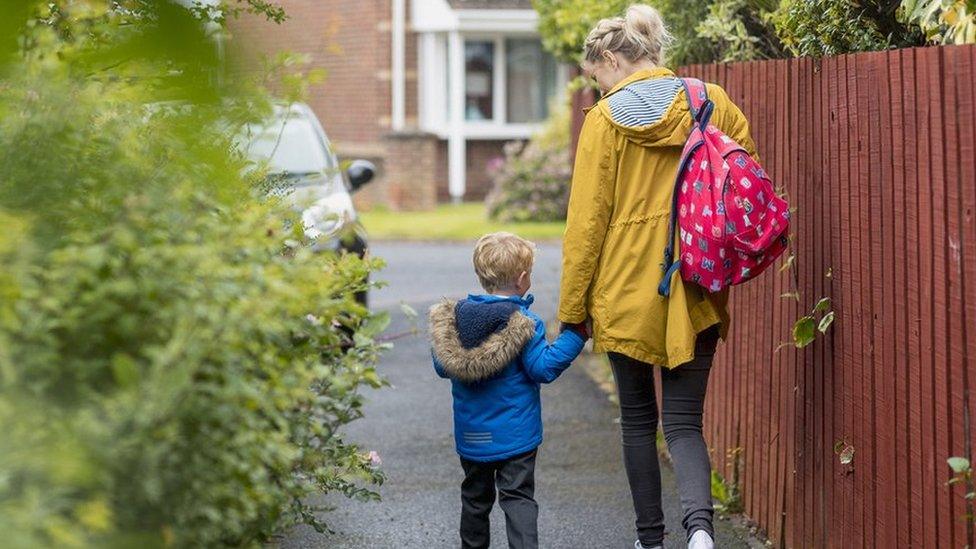Air pollution: Low income communities breathe worse air - study
- Published
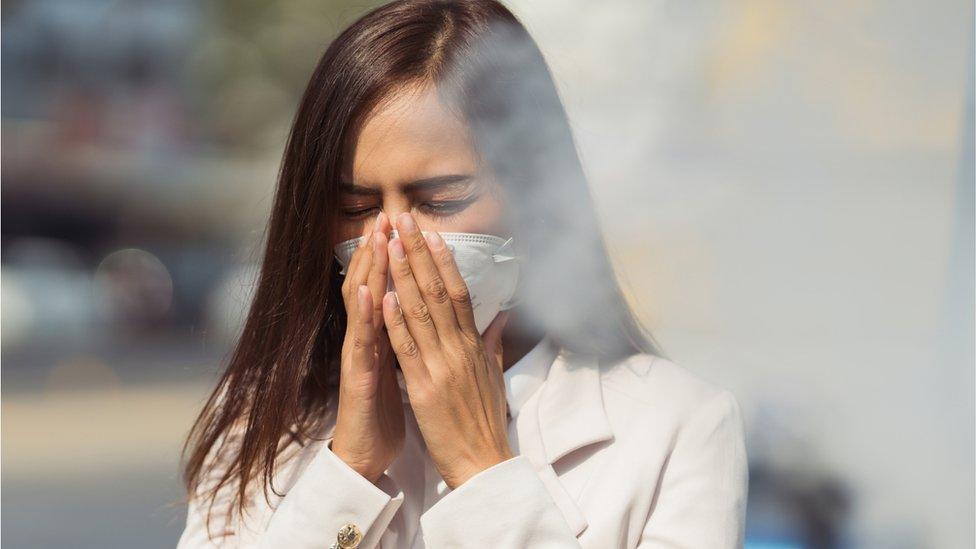
People on the lowest incomes, as well as communities with higher ethnic minorities, are disproportionately impacted by air pollution
People on the lowest incomes in Wales are more likely to live in areas with high air pollution, a study has shown.
Neighbourhoods with higher ethnic minority populations were also disproportionately affected.
Campaigners said the "shocking" findings showed work on new clean air laws needed to be sped up.
The Welsh government said it was bringing forward its Clean Air Bill that will introduce air quality targets for Wales.
The Friends of the Earth campaign group compared pollution data by neighbourhood with figures on levels of deprivation, car ownership, ethnicity, child population and schools.
Haf Elgar, director of Friends of the Earth Cymru, said it showed air pollution had become an issue of "social justice and equality".
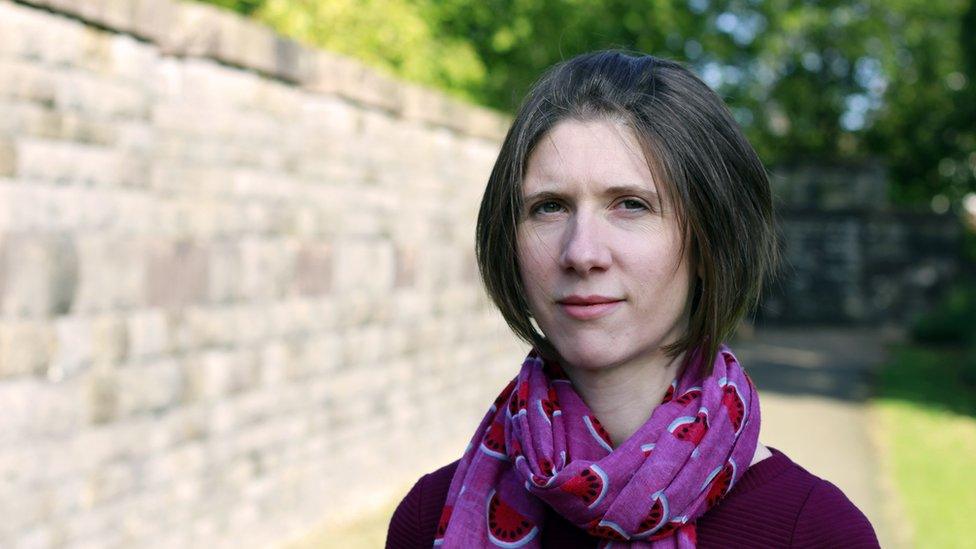
Haf Elgar said air pollution was heavily impacting those that contribute towards it the least
"[It affects] the most vulnerable in our society the most, those who are often doing the least to cause air pollution," she said.
The analysis suggested people of colour were five times more likely to live in areas with high levels of nitrogen dioxide (NO2) pollution, and two-and-a-half times more likely to live in areas with high particulate matter pollution (PM).
Joseph Carter, chairman of the Healthy Air Cymru and Asthma + Lung UK Cymru charities, said he found the study's findings to be "shocking but not surprising".
"To save lives, and protect our health and the environment, we must have a Clean Air Act for Wales as soon as possible," he added.
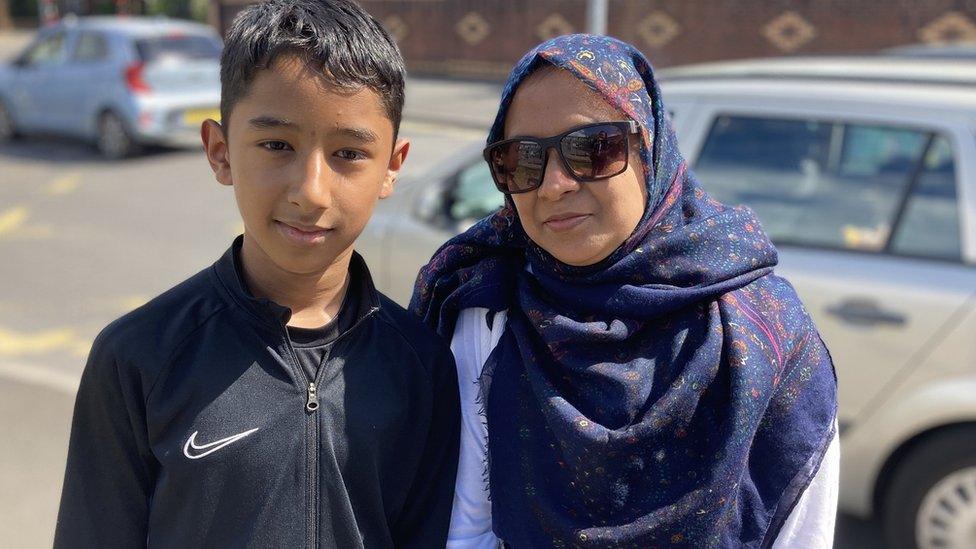
Jabeda Siddiqui said air pollution was not good for children
On the school run in the Canton area of Cardiff, Jabeda Siddiqui and her son Tabshir said traffic fumes did concern them.
"The pollution is not good for our children and babies. It would be better for people to walk or cycle," Ms Siddiqui said.
Pushing a pram in nearby Grangetown, Aderiyike, who did not provide her surname, added she would consider wearing a facemask "to prevent us from inhaling the odours".
Lisa Rees, also out for a walk with her toddler, said she could "feel it hit you and it sticks in your throat".
She thought one answer was to "reduce the cost of public transport so more people take that instead of focusing on cars".
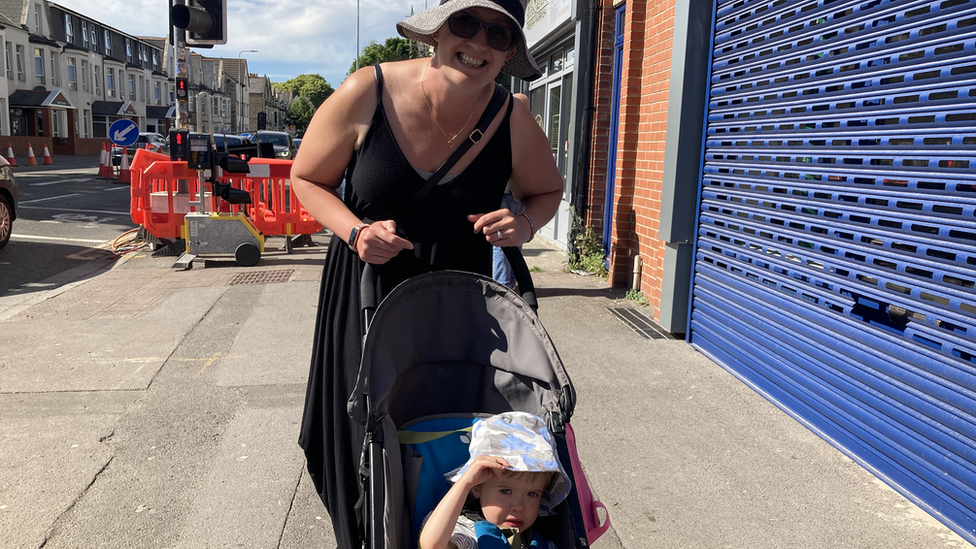
Lisa Rees, from Cardiff, said she can feel the pollution stick in her throat
Paula Dunster, a mother of two from Cardiff, was so concerned about pollution levels on her daily walks to and from school in the Llanedeyrn area of the city, she decided to carry out her own air quality tests.
"I did my own testing for a week back in March and on one day the levels were five times higher than the recommended limit. It just goes to show that sometimes there can be high levels," she said.
Ms Dunster said she wanted to see more monitoring and for the information to be easily accessible to help influence people's decisions about how they travel.
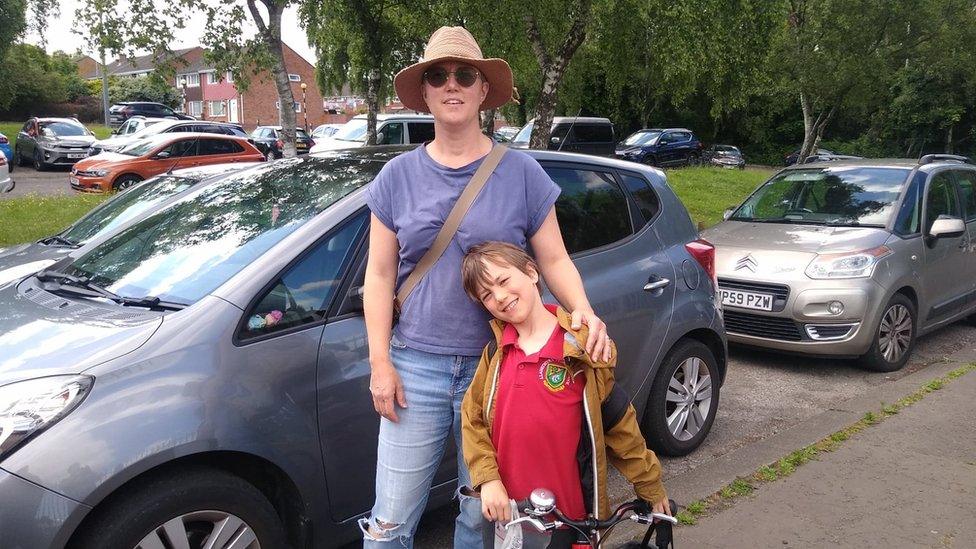
Paula Dunster's said her tests showed pollution levels were five times higher than the recommended limit
Ms Dunster said the findings of the Friends of the Earth study showed the situation was "unjust"
"It's not fair on people - we need to do as much as we can to make sure people in these areas can stay healthy and their children too," she added.
'The greatest risk to health'
A new Clean Air Act for Wales has been long promised by the Welsh government, and the idea enjoys cross-party support in the Senedd.
Ministers set out an idea of what could be in the new legislation in January 2021, suggesting drafting of the bill would start this year.
But clean air campaigners have argued the timetable is far too slow, and could result in new measures and targets to try to curb poor air quality not coming into force until 2026.
Public Health Wales has described air pollution as the greatest environmental risk to people's health, contributing to between 1,000 and 1,400 deaths a year in Wales.
'Social justice emergency'
Welsh Conservative spokeswoman for climate change, Janet Finch-Saunders, said every year the government kicked "this vital act down the road is another year that the poorest in society have to breathe polluted air".
Plaid Cymru's climate change spokeswoman Delyth Jewell described the situation as a "social justice emergency" that should be at the "very top" of the government's agenda."
She said: "We are poisoning our children and this is more prevalent in place where people who are already facing more disadvantages are living. There has to be a clean air act introduced with urgency".
The Welsh government said: "We are bringing forward the Clean Air Bill for Wales Act that will introduce an air quality target setting framework that takes into account guidelines set by the World Health Organization.
"Tackling air quality and climate change together will deliver quicker, faster and fairer outcomes for people, nature and the planet.
"This will benefit everyone and especially those people living in our most deprived communities who are disproportionately affected by air pollution."
Related topics
- Published27 January 2020
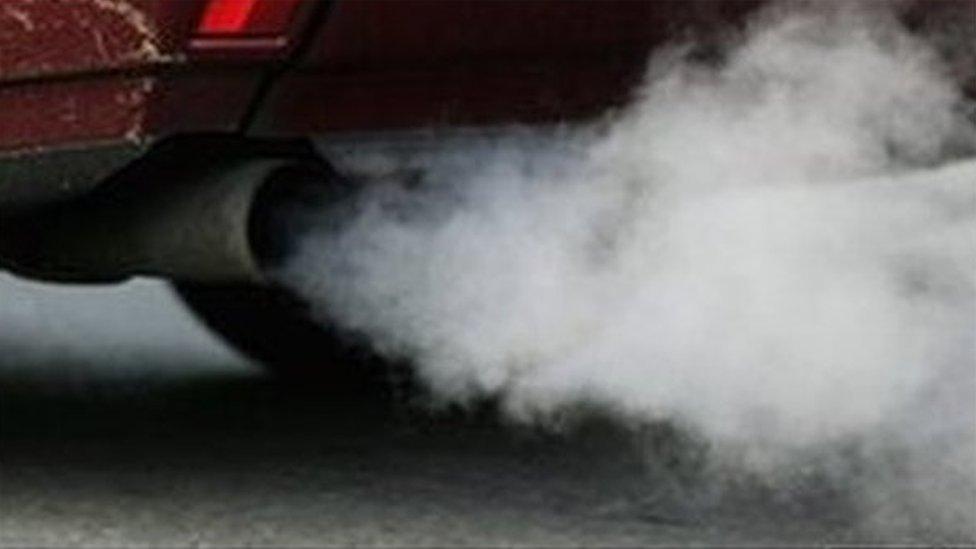
- Published14 October 2021
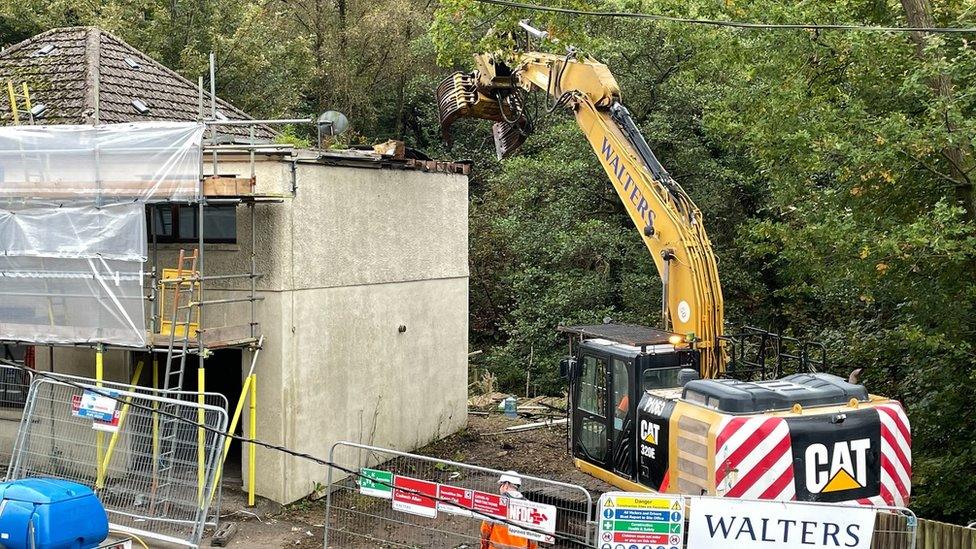
- Published13 March 2022
